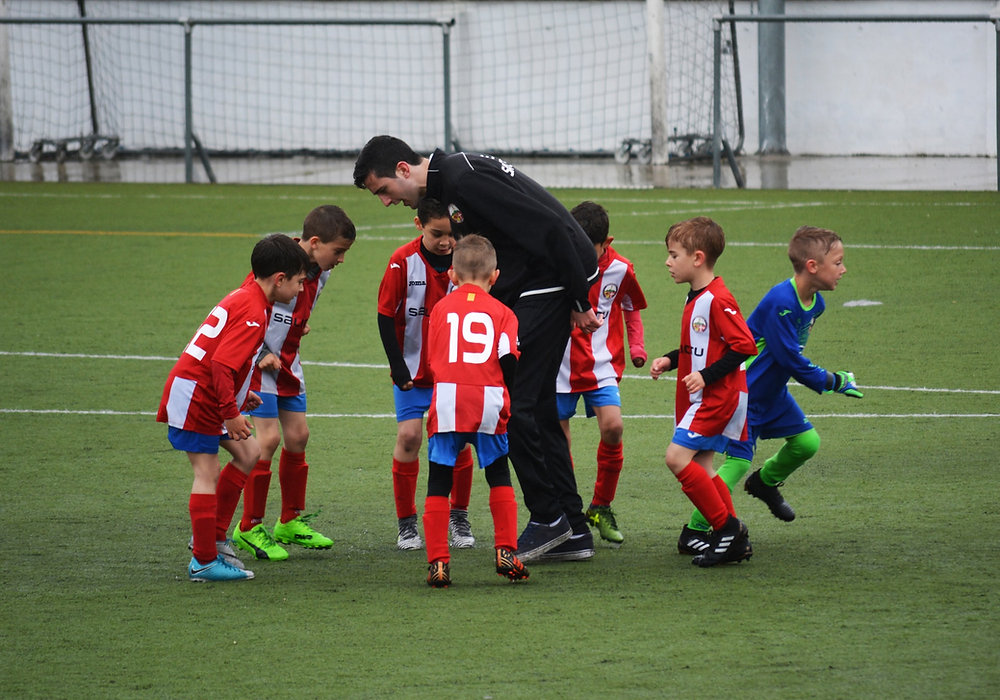Sports Goal Setting Motivation - Achieving Success
Learn how sports goal setting and motivation drive success in athletics. Explore the necessity of goal-setting in sports.

Sports, in all its various forms, are an embodiment of human aspiration, perseverance, and achievement. Athletes strive to reach the pinnacle of their abilities and achieve feats that push the boundaries of human potential. Yet, the path to excellence in sports is not without its challenges, obstacles, and setbacks. This is where the twin pillars of goal-setting and motivation come into play. In this essay, we will delve into the crucial necessity of goal-setting and motivation in sports, exploring their individual significance and how they intertwine to fuel an athlete's journey to success.
The Significance of Goal-Setting in Sports
Goal-setting is the compass that guides athletes on their journey to success. Whether it's a novice striving to master the basics of a sport or a seasoned professional vying for an Olympic gold medal, setting clear, specific, and attainable goals is the foundational step towards progress. Here's why goal-setting is paramount in sports:
Direction and Focus: Goals provide athletes with a sense of direction. They serve as a roadmap, outlining the steps required to reach a desired destination. Without clear goals, athletes may find themselves wandering aimlessly, lacking a sense of purpose and focus.
Measurable Progress: Setting specific and measurable goals allows athletes to track their progress. This not only boosts confidence but also helps in identifying areas that require improvement. For instance, a sprinter aiming to reduce their 100-meter time by 0.2 seconds can measure their success objectively.
Motivation: Goals act as a powerful source of motivation. When athletes have a clear target in mind, they are more likely to stay committed to their training regimen, even in the face of adversity. The pursuit of these goals becomes a driving force that propels them forward.
Accountability: Goals hold athletes accountable for their actions and performance. Athletes are more likely to adhere to their training schedules and make the necessary sacrifices when they know that their progress is being measured against predefined objectives.
Achievement and Satisfaction: Accomplishing goals, whether big or small, brings a sense of achievement and satisfaction. These positive emotions can boost an athlete's morale and self-esteem, reinforcing their commitment to the sport.
Long-Term Vision: Setting both short-term and long-term goals encourages athletes to think beyond immediate results. It cultivates a sense of vision and ambition, encouraging them to dream big and pursue excellence over an extended period.
Resilience: In sports, setbacks and failures are inevitable. However, athletes with well-defined goals are more likely to bounce back from disappointments. They view setbacks as temporary obstacles on the path to their ultimate objective.
To illustrate the importance of goal-setting, let's consider the example of a tennis player aiming to win a Grand Slam tournament. This player would set a series of goals, such as improving their serve accuracy, enhancing their footwork, and increasing their fitness level. By breaking down the ultimate goal into smaller, actionable objectives, the player can work systematically towards their dream of winning a Grand Slam title.
The Role of Motivation in Sports
While goal-setting provides the roadmap, motivation fuels the journey. In the realm of sports, motivation can be described as the inner drive and desire to achieve success. It is the mental and emotional energy that propels athletes to push their limits and go the extra mile. Let's explore why motivation is indispensable in sports:
Overcoming Challenges: Sports often present athletes with formidable challenges. Whether it's a grueling training session, a tough opponent, or a career-threatening injury, motivation is what empowers athletes to face these challenges head-on.
Consistency: Maintaining consistency in training and performance is crucial for success in sports. Motivated athletes are more likely to stick to their training routines and put in the effort day in and day out.
Adaptability: Motivation enables athletes to adapt to changing circumstances. It helps them stay focused on their goals even when the conditions are not ideal. This adaptability is a key factor in coping with unexpected setbacks.
Positive Mindset: Motivation fosters a positive mindset. Athletes who are motivated tend to have a more optimistic outlook and are better equipped to handle stress and pressure.
Endurance: Sports often demand physical and mental endurance. Motivated athletes are better equipped to endure the pain, fatigue, and discomfort associated with intense training and competition.
Competitive Edge: In sports, where the margin between victory and defeat can be razor-thin, motivation can provide the competitive edge. It can be the difference-maker in a closely contested match or race.
Passion and Enjoyment: Motivation is closely linked to passion and enjoyment. Athletes who are motivated by their love for the sport are more likely to derive satisfaction from their efforts, regardless of the outcome.
Consider the example of a marathon runner preparing for a major race. Motivation, in this context, might come from the desire to achieve a personal best time, the thrill of competing in a prestigious event, or the dedication to a cause they are running for. This motivation serves as the driving force behind the rigorous training, the early morning runs, and the mental resilience needed to endure the physical and psychological challenges of a marathon.
The Interplay of Goal-Setting and Motivation
Goal-setting and motivation are not isolated concepts in sports; they are intricately intertwined. The relationship between the two can be best understood through the following points:
Goals Enhance Motivation: Clearly defined goals serve as a wellspring of motivation. When athletes set challenging but attainable goals, they ignite their passion and drive to achieve those goals. Each goal becomes a source of inspiration, fueling their determination.
Motivation Sustains Goal Pursuit: While goals provide the initial impetus, motivation is what sustains athletes throughout the journey. It helps them stay committed to their goals, even when faced with obstacles and setbacks.
Adaptation and Reevaluation: Motivation can lead athletes to adapt and reevaluate their goals as they progress. If they achieve a goal sooner than expected, they may set a new, more ambitious one. Conversely, if they encounter difficulties, motivation can help them adjust their approach rather than abandon their goals.
Accountability and Measurement: Motivation ensures that athletes take their goals seriously. They understand that the pursuit of these goals requires dedication and effort. Motivation also drives athletes to measure their progress regularly, ensuring that they stay on track.
Balance and Well-Being: Motivation can also help athletes strike a balance between pushing themselves to achieve their goals and maintaining their physical and mental well-being. It prevents them from setting unrealistic goals that could lead to burnout or injury.
Consider a soccer player aiming to make it to the national team. Their initial goal might be to improve their skills and fitness to a level where they can consistently perform at a high standard in their club. As they work toward this goal, their motivation is fueled by the dream of representing their country. Achieving the initial goal serves as a stepping stone, and their motivation drives them to set new goals, such as impressing national team selectors during trial matches or training camps.
Overcoming Challenges in Goal-Setting and Motivation
While the benefits of goal-setting and motivation in sports are evident, athletes often encounter challenges in implementing these principles effectively. Here are some common challenges and strategies to overcome them:
Lack of Clarity: Setting vague or poorly defined goals can hinder progress. Athletes should invest time in clearly articulating their goals, making them specific, measurable, achievable, relevant, and time-bound (SMART).
Overemphasis on Outcome Goals: Outcome goals, such as winning a championship, are important, but they are not entirely within an athlete's control. Focusing solely on outcome goals can lead to frustration. Athletes should also set process goals, which are actions and behaviors within their control that contribute to achieving the desired outcome.
Inadequate Planning: Goals without a plan are mere wishes. Athletes should break down their goals into actionable steps and create a detailed plan for achieving them. This plan should include training schedules, nutrition, recovery strategies, and performance evaluation.
Loss of Motivation: Motivation can fluctuate over time, especially during periods of stagnation or setbacks. To combat this, athletes can seek external motivation from coaches, teammates, or mentors and also cultivate intrinsic motivation by reminding themselves of their personal reasons for pursuing their goals.
Burnout and Overtraining: The relentless pursuit of goals can sometimes lead to overtraining and burnout. Athletes should incorporate rest and recovery into their training plans and periodically reassess their goals to ensure they remain realistic and sustainable.
Fear of Failure: The fear of failing to meet one's goals can be paralyzing. Athletes should reframe failure as an opportunity for growth and learning. This perspective can reduce anxiety and increase resilience.
Injury and Setbacks: Injuries and setbacks are an inevitable part of sports. Athletes should be prepared to adapt their goals and stay motivated during rehabilitation periods. Mental conditioning techniques, such as visualization and positive self-talk, can help maintain motivation during these challenging times.
In the world of sports, where the pursuit of excellence is a constant endeavor, goal-setting and motivation stand as pillars of success. Goal-setting provides the roadmap, offering direction, focus, and accountability, while motivation supplies the relentless energy needed to traverse the challenging terrain of athletic achievement. The interplay between these two concepts is the essence of an athlete's journey, driving them to overcome obstacles, adapt to changing circumstances, and ultimately, realize their full potential.
The necessity of goal-setting and motivation in sports is not limited to elite athletes; it applies to individuals at all levels of participation. Whether one is striving for a personal best in a local race, aiming to make the varsity team in high school, or dreaming of Olympic glory, the principles of goal-setting and motivation remain constant. These principles empower athletes to push their boundaries, celebrate their achievements, and find fulfillment in the pursuit of their sporting passions.
As athletes continue to inspire us with their dedication, resilience, and achievements, it becomes increasingly evident that the journey of an athlete is not just about the medals and records but also about the personal growth, character development, and unwavering spirit that goal-setting and motivation nurture along the way. In the end, it is the pursuit of these goals and the unwavering motivation that truly make sports a reflection of the human spirit's boundless potential.
What's Your Reaction?



















